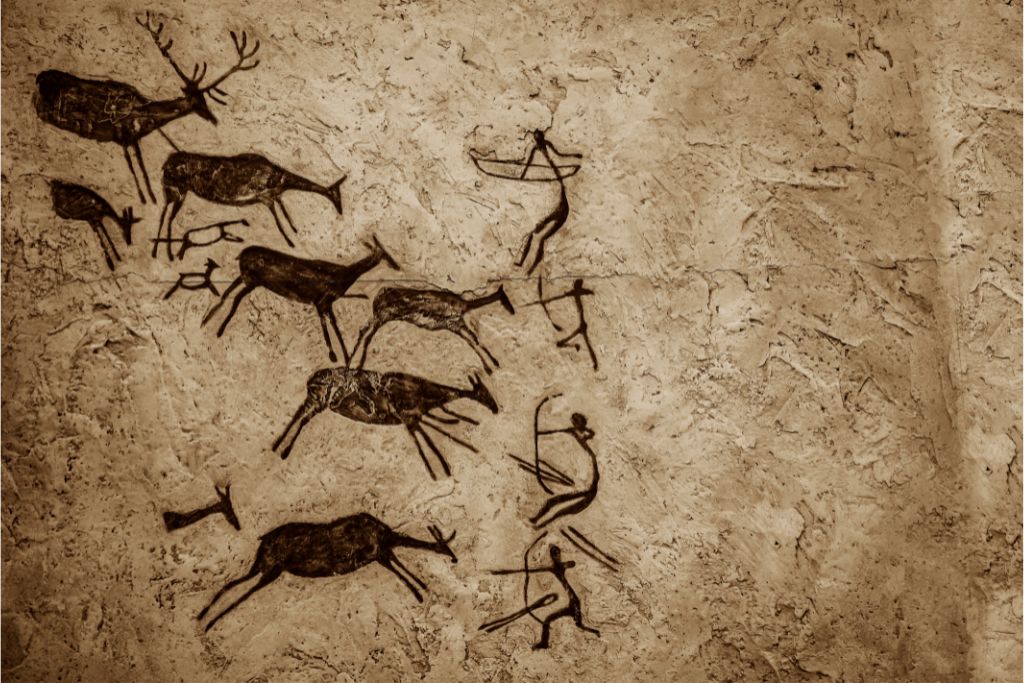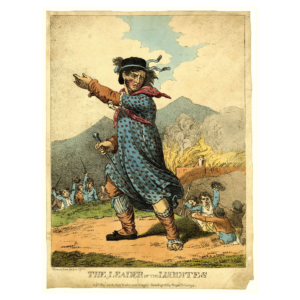Whether humans are truly the species that has exhibited the most impulse control is perhaps better answered by philosophers. One thing is clear: impulse control (the ability to regulate desires, emotions and behaviors to achieve a goal that’s larger than what’s happening in the moment) was a required development amongst early humans for cooperation and community to form which was how we adapted to our environment (rather than grow big teeth or claws).
Our early ancestors, like other animals, operated primarily on instinct and immediate gratification to ensure survival. However, as human societies evolved and demanded more control over their environment, their societies required more sophistication, and the need for impulse control arose. The transition from a nomadic, hunter-gatherer lifestyle to settled agricultural communities demanded long-term planning, delayed gratification, and cooperation for the common good. This shift placed a premium on the ability to regulate impulsive urges and consider the future consequences of actions.
Several theories attempt to explain how humans developed impulse control:
- Social Brain Hypothesis: Robin Dunbar’s Social Brain Hypothesis posits that the increasing complexity of human social interactions drove the expansion of our brain size. With larger social groups, maintaining relationships and managing conflicts required restraint and impulse control to prevent disruptions within the community. While other species depended on structural adaptations to survive (teeth, claws, wings, etc.), humans used cooperation to become the dominant species.

Consider the Humble Pencil as a symbol of humankind’s reliance on cooperation. Remarkably, no single individual alive today possesses a comprehensive understanding of the intricate web of processes and technologies essential to crafting a pencil. From the mining of graphite and the extraction of wood to the precision of machinery in manufacturing, the pencil’s journey encompasses diverse fields such as geology, forestry, metallurgy, engineering, and logistics. Even as our world becomes more interconnected, this humbling truth persists: the collaborative efforts of countless specialists are required to orchestrate the production of a single pencil, showcasing the collective brilliance of humanity’s pursuits and the intricate tapestry of knowledge that underpins our modern civilization.
- Cultural Evolution: The emergence of culture and the transmission of knowledge across generations provided a platform for the development of impulse control. As cultural norms and practices developed, individuals who adhered to societal rules and demonstrated self-control gained advantages in terms of social status, cooperation, and resource sharing.
The cultural development of religion has become recognized as an evolutionary feature that plays a significant role in shaping and fostering impulse control within human societies. Across various cultures and belief systems, religious teachings often emphasize moral values, self-discipline, and restraint. Through rituals, practices, and teachings, religion provides individuals with frameworks for managing their impulses, cultivating patience, and making decisions that align with broader societal and spiritual ideals. By instilling a sense of accountability to divine or transcendent forces, religion has contributed to the development of self-regulation and impulse control, serving as a cornerstone for promoting harmony within communities and fostering personal growth.

- Agriculture: Delaying gratification by saving food, planning for seasons, and working collectively fortified human communities. Such control allowed for the development of agriculture, advanced tool-making, and the formation of complex societies. Essentially, our capacity to rein in impulsive behaviors laid the groundwork for progress and adaptation.
- Parental Investment: Humans have a prolonged period of childhood dependency compared to other species. Parental investment in offspring necessitated increased planning, protection, and cooperation. Those individuals who exhibited impulse control were more likely to provide consistent care to their offspring, increasing their chances of survival and passing on their genes.

- Development of Frontal Lobe: The expansion of the prefrontal cortex, a brain region crucial for executive functions including impulse control, coincided with the evolution of Homo sapiens. This development allowed for sophisticated decision-making, abstraction, and long-term planning.
- Gene-Culture Co-evolution: Some researchers propose that genes associated with impulse control could have been favored by natural selection due to their alignment with cultural and societal changes that emphasized cooperation, trade, and complex relationships.
These theories suggest that impulse control evolved as an adaptive trait driven by the challenges posed by changing social dynamics, environmental demands, and the need for successful intergenerational knowledge transfer which has been observed in many other successful species (such as pigeons). The development of impulse control enabled humans to navigate intricate social networks, plan for the future, and collaborate effectively, all of which contributed to our species’ dominance and survival.
While these theories offer valuable insights, the evolution of impulse control is likely a result of a combination of factors, with no single theory providing a complete explanation. The journey from impulsive creatures to beings capable of delaying gratification and considering long-term consequences underscores the fascinating interplay between biology, culture, and social dynamics in shaping the course of human evolution.





